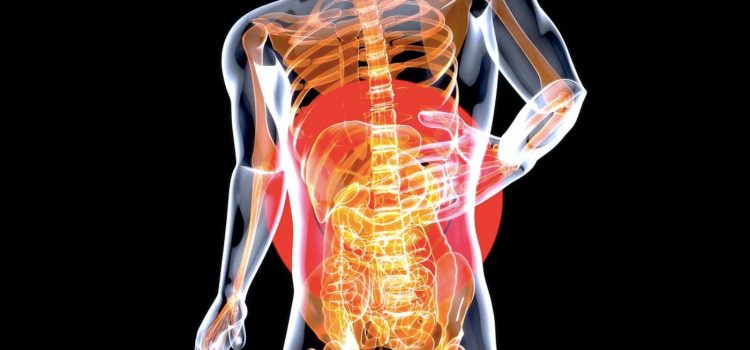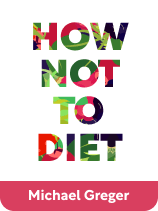

This article is an excerpt from the Shortform book guide to "How Not to Diet" by Michael Greger. Shortform has the world's best summaries and analyses of books you should be reading.
Like this article? Sign up for a free trial here.
What causes inflammation in your body? How can you reduce inflammation?
Inflammation can be caused by eating processed foods and animal products. In How Not to Diet, Michael Greger suggests several anti-inflammation ingredients that you can add to your food to reduce inflammation.
Read more for ways to reduce inflammation that’s hurting your body.
What Causes Inflammation in Your Body
According to Greger, processed foods and animal products stimulate inflammation in your body. He explains that, normally, inflammation is the body’s way of triggering the healing process whenever it gets hurt or sick. In this type of situation, the inflammation that occurs is short-term and targeted toward resolving a specific problem. For example, you stub your toe, and it looks and feels inflamed for a few hours until it heals.
However, processed foods and animal products contain high quantities of saturated fat and trans fat—substances that stimulate an inflammatory response that is long-term and unspecific. This means that the inflammation lingers in your whole body and, instead of healing you, it creates hormone imbalances that perpetuate many diseases such as heart disease, bowel disease, arthritis, and dementia. In addition to harming your health, these hormone imbalances contribute to weight gain because they raise your blood sugar levels, increase your appetite, and decrease your metabolism.
Chronic Inflammation Attacks Healthy Cells, Tissues, and Organs
Research confirms that processed foods and animal-derived products (particularly dairy and red meat) contribute to chronic inflammatory diseases and weight gain. Additionally, people who regularly eat these foods are at twice the risk of developing colorectal cancer, and they up their risk of mortality by 23%.
These foods cause inflammation, disease, and weight gain because they contain unnatural substances that your body classifies as threats to your immune system. To protect itself, it produces and sends out inflammatory cells to trap and neutralize these threats.
The more inflammatory foods you consume, the more inflammatory cells your body releases in response. These inflammatory cells build up and eventually start attacking healthy cells, tissues, and organs, resulting in diseases like diabetes, rheumatoid arthritis, and heart disease. In other words, your body’s attempts to protect your immune system actually weaken it. To compensate for this weakness, your body funnels even more resources toward protecting your immune system. As a result, it spends less energy digesting food—contributing to a decrease in metabolism and an increase in blood sugar levels and appetite.
Add Anti-Inflammatory Ingredients to Your Food
Gregers suggests that you drink three cups of green tea each day, and add the following ingredients to your food to cure inflammation in your body: turmeric, ginger, garlic, nutritional yeast, vinegar, black cumin, and cayenne pepper. These ingredients are high in anti-inflammatory properties. (Inflammation creates hormone imbalances that increase blood sugar levels and appetite.) This means that consuming anti-inflammatory ingredients prevents blood sugar spikes, regulates appetite, and boosts metabolism.
Possible Side Effects of Consuming Anti-Inflammatory Ingredients
Research in this area isn’t definitive—while ongoing studies suggest that consuming these ingredients might prevent blood sugar spikes, regulate appetite, and boost metabolism, they also reveal numerous possible side effects to consider before adding them to your diet:
- People with severe caffeine sensitivities may experience insomnia, anxiety, irritability, nausea, or an upset stomach.
- Consuming the tea alongside stimulant drugs may increase blood pressure and heart rate.
- It stimulates the production of gastric acid, which can lead to an upset stomach.
- It thins the blood—making it unsafe for pregnant women or people who take blood-thinning drugs.
- Large doses (more than five grams a day) may cause gas, heartburn, an upset stomach, or mouth irritation.
- It might be unsafe for people who take blood-thinning drugs or medication for diabetes or high blood pressure.
- Excess consumption can trigger migraines and cause dizziness, nausea, vomiting, heartburn, diarrhea, gastroesophageal reflux disease, swelling in the kidneys, and liver toxicity.
- It may lead to bad breath, excess sweating, vaginal yeast infections, and skin irritations such as eczema or rashes.
- It might be unsafe for people who take blood-thinning drugs or medication for high blood pressure.
- It can cause gas or an upset stomach.
- Possible allergic reactions include hives and asthma.
- It might be unsafe for people with Crohn’s disease; elevated yeast antibody counts; or an autoimmune disease such as rheumatoid arthritis, lupus, or multiple sclerosis.
- Because it’s highly acidic, it can cause acid burns and injury to the digestive tract (the throat, esophagus, and stomach) resulting in ulcers, gastritis, vitamin deficiencies, and an increased risk of developing cancer of the upper gastrointestinal tract.
- It damages the liver and kidneys, irritates the central nervous system, and may decrease potassium levels and bone density.
- It can cause hypoglycemia, creating symptoms such as anxiety or dizziness.
- It may weaken tooth enamel, leading to cavities and other dental problems.
- Due to its tyramine levels, it may cause high blood pressure, joint pain, urticaria, IBS, and headaches.
- It might be unsafe for people who take blood-thinning drugs, laxatives, diuretics, or medications for diabetes or heart disease.
- It may cause nausea and bloating.
- Due to limited research on its side effects, women who are pregnant or breastfeeding should only use small amounts for flavoring food.
- It might be unsafe for people with kidney problems or those who take blood-thinning drugs or beta-blockers.
- In addition to causing irritability to the throat, mouth, and nose, it may lead to heartburn, stomach disorders, nausea or vomiting, and bronchitis.
- It aggravates IBS and gastroesophageal reflux disease symptoms.
- Possible allergic reactions include eczema, swelling, coughing, urticaria, and conjunctivitis.
- It might be unsafe for people who take blood-thinning drugs, ACE inhibitors, and antacids.

———End of Preview———
Like what you just read? Read the rest of the world's best book summary and analysis of Michael Greger's "How Not to Diet" at Shortform.
Here's what you'll find in our full How Not to Diet summary:
- How eating processed foods and animal products leads to weight gain
- Why eating plant-based foods reduces the calories your body stores as fat
- What dietary changes will help you shed excess pounds and keep them off






